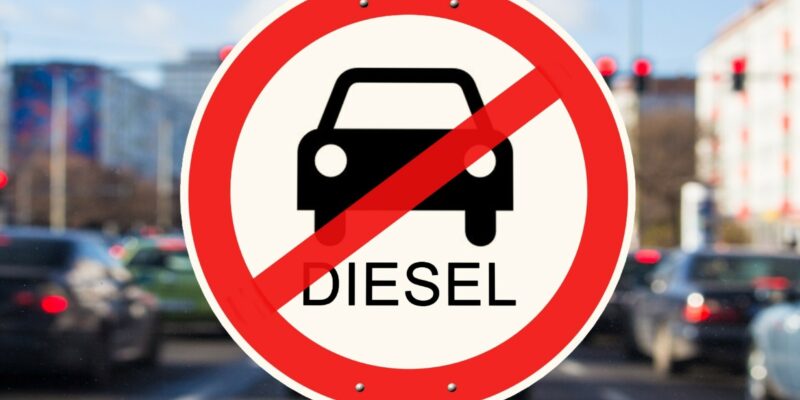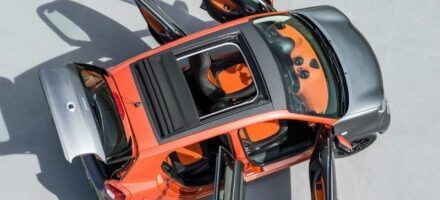
Exploring The Impact Of The 2030 Ban On Petrol And Diesel Cars
The face of the automotive industry is changing all the time, and the pace of that change has increased exponentially over the past 10 years or so. The likes of innovative in-car gadgets are transforming the driver and passenger experience, while the continual development of green technology is set to revolutionise the impact our vehicles have on our surroundings.
And that environmental focus is one that’s shared across the board. In November 2020, the UK government announced there would be a ban on petrol and diesel cars from 2030. The initiative is all part of the authorities’ pledge to bring greenhouse gas emissions to net zero by 2050.
The petrol and diesel car ban is a major step, and one that’s sure to have a widespread impact on the industry. So, what changes can we expect to see over the coming decade? How will the impending ban affect the value of both standard combustion and electric vehicles (EVs)? Let’s take a look…
What is the petrol and diesel car ban?
The ban on petrol and diesel cars from 2030 is part of the government’s 10-point plan for a green industrial revolution. That wider strategy includes producing more offshore wind power, planting more trees, and making homes, schools and hospitals more energy efficient.
It means sales of new petrol and diesel cars from 2030 will be outlawed, while a second phase to the plan will see all cars and vans go emission-free by 2035. Those timescales have actually been pushed forward, thanks in part to the great strides that have been made in EV production and availability.
Upon the announcement of the ban, Transport Secretary Grant Shapps said: “The UK is going further and faster than any other major economy to decarbonise transport, harnessing the power of clean, green technology to end the UK’s contribution to climate change by 2050.
“Bringing forward the phase-out date could create 40,000 extra jobs by 2030, particularly in our manufacturing heartlands of the North East and across the Midlands, and will see emissions reductions equivalent to taking more than four million cars off the road.
“We are also leading the charge when it comes to the transition to zero-emission vehicles and today’s timely boost in funding builds on our world-leading £2.5 billion package to encourage drivers to make the switch.”
Do existing vehicles fall under the ban on petrol and diesel cars?
No, the petrol and diesel car ban applies to new models only. So, any existing vehicles that are powered by a conventional combustion engine will continue to be road-legal after the 2030 deadline. You will also still be able to purchase second-hand models after this point.
It stands to reason that we can expect to still see petrol and diesel cars on our roads for a good few years after the ban comes into place, as drivers may not be willing to give up a vehicle that is in perfectly good working order. However, it’s also likely those models will be subject to greater regulation and perhaps extra charges – the likes of which we are already seeing in low-emission zones across the country.
Of course, the petrol and diesel car ban might prompt some drivers to consider converting their vehicles to run on electric power, but this process can often prove more expensive than simply making the switch to a zero-emission vehicle.
What will happen to petrol and diesel cars?
We can already see that the demand for traditional combustion engine models is falling. Recent data from the Society of Motor Manufacturers and Traders shows that new diesel registrations in 2021 are down 46.9% compared to the same point last year, while the figures for petrol models are similarly telling, illustrating a 28.4% drop.
That declining demand, combined with the increased affordability of EVs, means the value of conventional combustion models is likely to drop. In theory, that might mean you can pick up great deals on petrol and diesel cars as we approach the 2030 ban, but the flip side is that parts are likely to be far less available, which makes repairs and running costs more expensive.
It’s also believed that any finance agreements that run beyond the 2030 petrol ban will have to be honoured, so you could be left paying over the odds for a vehicle that no longer holds anything like its original value.
What will happen to classic cars when petrol is banned?
The definition of a classic car will sometimes depend on who you ask, although many insurers will require it to be at least 15 years old and used as a second vehicle. For the time being, there is no indication that classic vehicles will be deemed to be any different from standard models once the ban on petrol and diesel cars comes in.
What does the petrol and diesel car ban mean for electric vehicles?
There’s no two ways about it – the ban on petrol and diesel cars from 2030 means the electric revolution is coming. There are already signs that the plans are influencing the market. New registrations of battery EVs are up almost 75% compared to the same stage in 2020, while the market share in 2021 has risen from 3.8% to 7.5%.
The petrol and diesel car ban means those trends are only likely to continue. A rising demand will mean cheaper production costs, which is good news for drivers, who should see that reflected in more affordable price tags.
For the time being, the government offers incentives in the shape of an electric car grant, which entitles you to a discount on the sale price of a new EV. That scheme is set to end in 2023, but if current trends continue then we could reach a point well before the petrol and diesel car ban where EVs match combustion-powered models in terms of affordability. That would make them hard to ignore as the go-to option.
Will you join the electric revolution?
The 2030 petrol ban might seem a long way off, but given how much progress the industry has made over the previous decade, it’s a milestone that’s going to come around fast. At Jardine Motors, we’re right at the forefront of that evolution and we offer a wide range of new electric models to help you contribute towards a greener future.
If going emission-free is an avenue you’d like to explore, why not locate your nearest dealership or simply get in touch with our friendly team. The ban on petrol and diesel cars is set to change the face of the industry forever, and it’s a journey that we want to enjoy with you.
You Might Also Like
What’s The Difference Between Hybrid And Electric Cars?
Electric Car Maintenance: Everything You Need To Know
Green Number Plates And What They Could Mean For EV Drivers
Visit our YouTube channel where you can find car reviews and expert advice.



